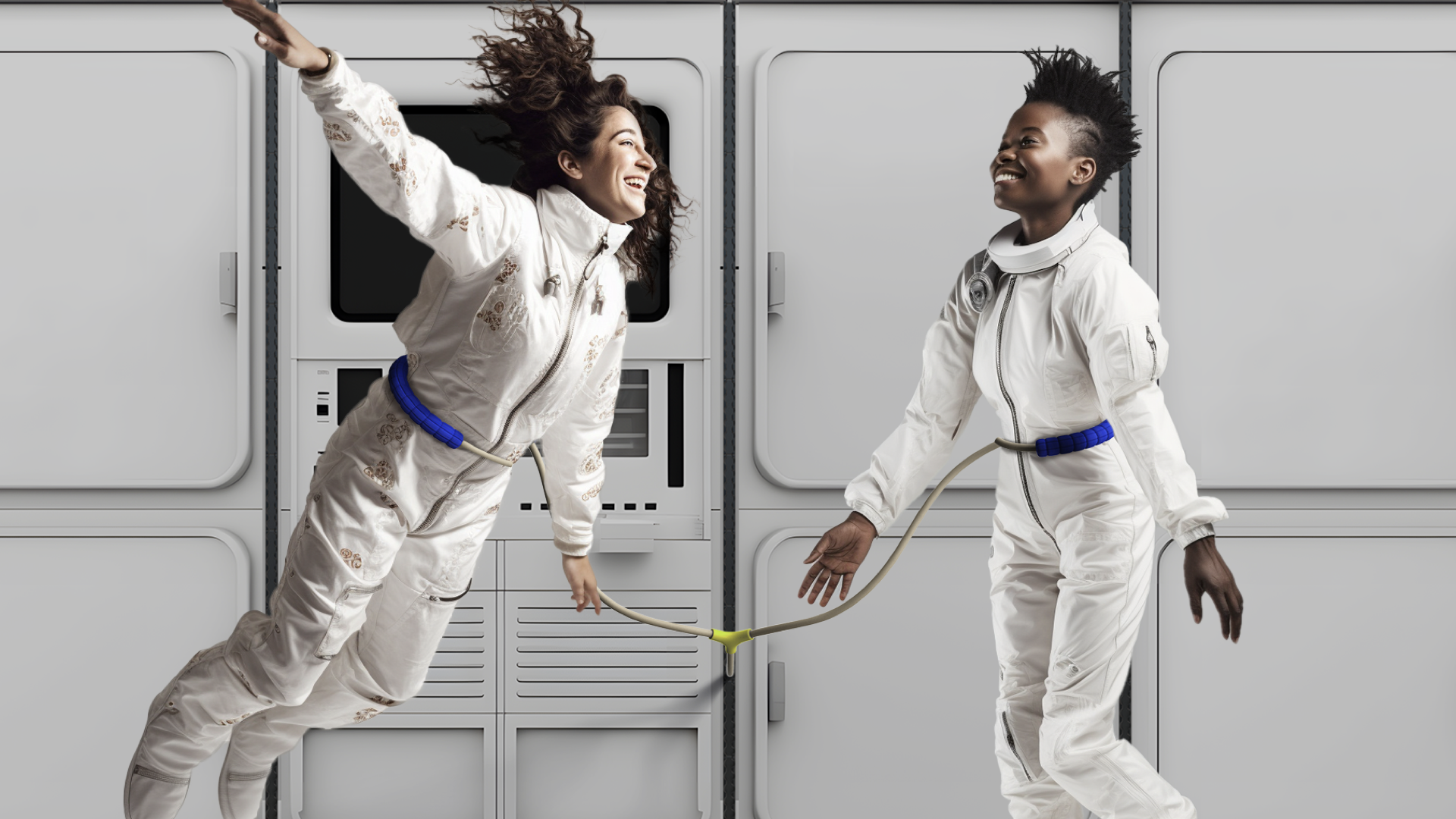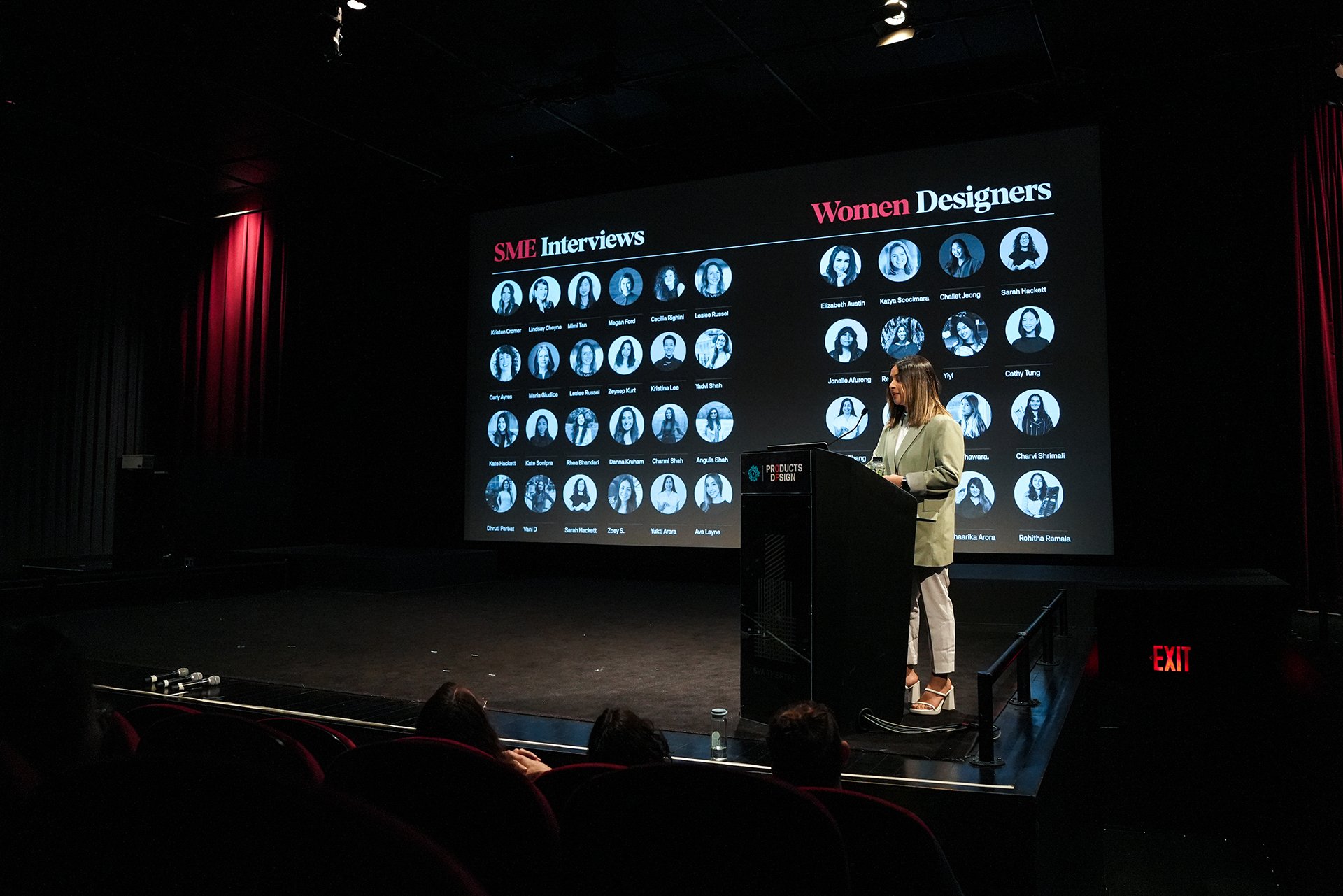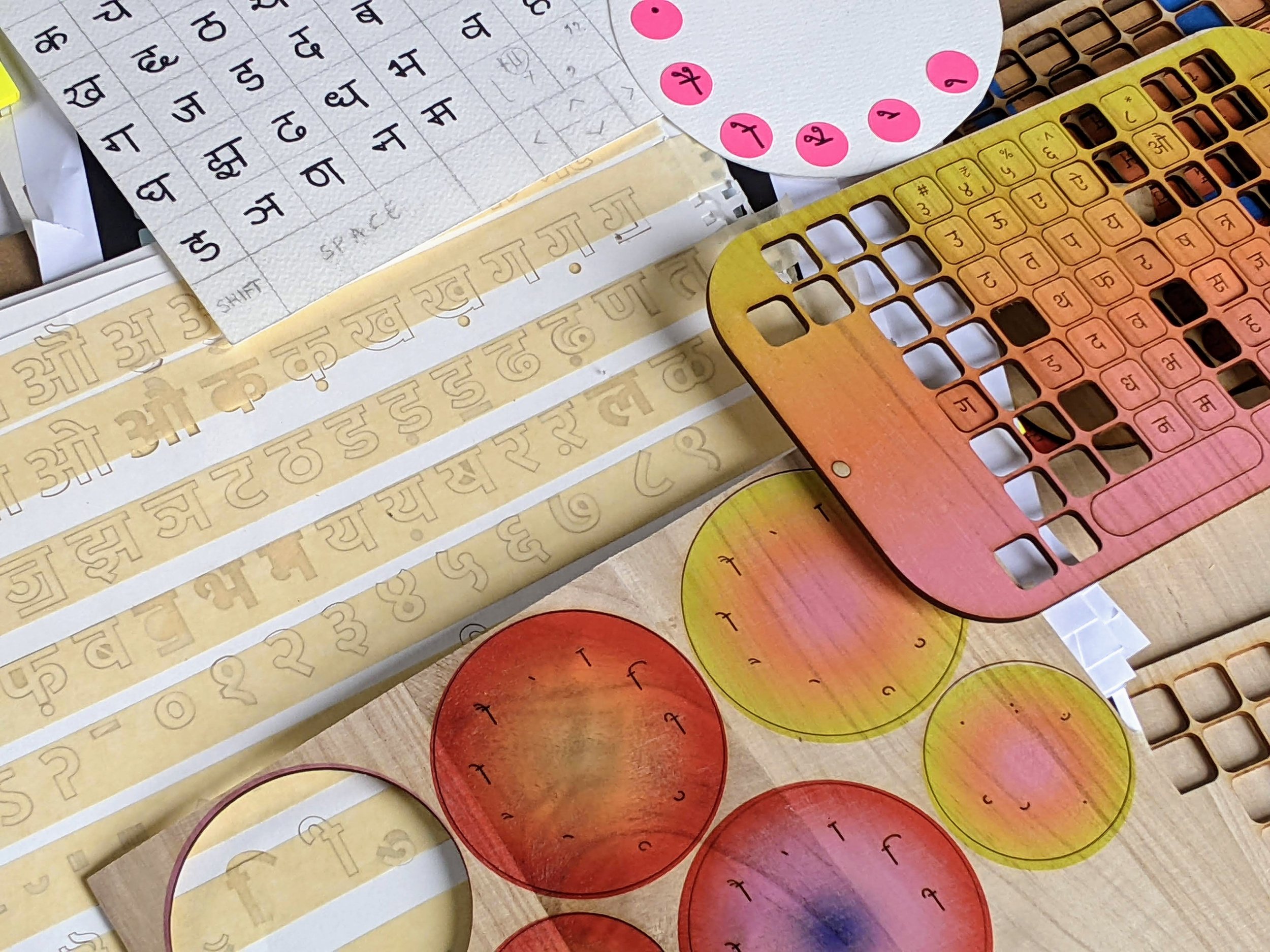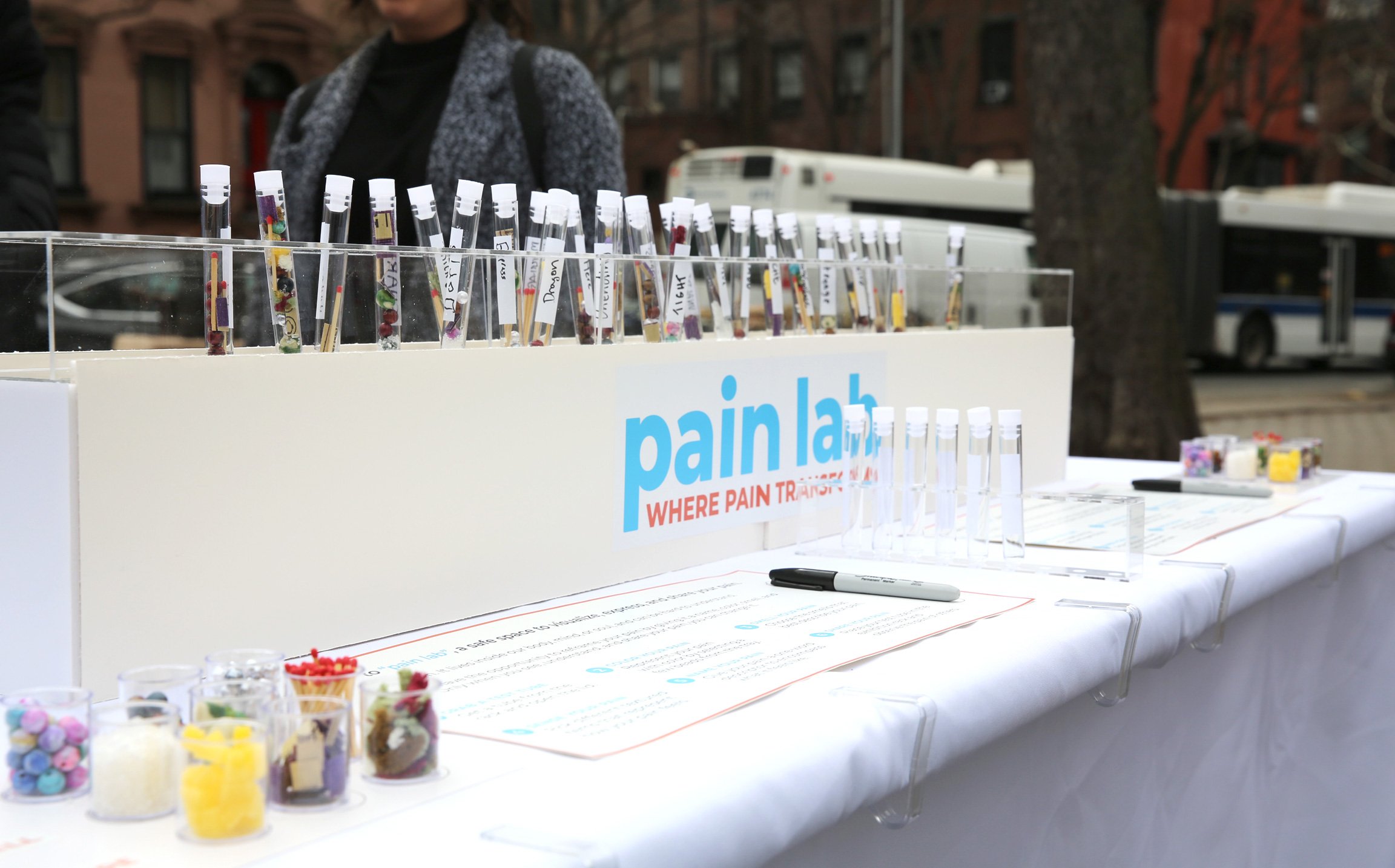
Student Projects
Products, Mobile Apps, Platforms, Thesis Work, and Design Thinking.
Applications are open! Deadline Jan. 15
〰️
Applications are open! Deadline Jan. 15 〰️
Featured Projects
Latest Projects
Preserving Humanness: Where Bodies and Technology Meet
How are we being shaped by technology? How will our bodies look and feel in the future? Who are we without technology? These curiosities have steered Erika Choe's thesis, Preserving Humanness: Where Bodies and Technology Meet.
Humans have always been deeply entangled with technology. From the first stone tools to modern phones and computers, technologies that surpass our physiological capabilities and enhance our experience of the world have shaped human history.
Technology makes what was impossible, possible. And while this can often be positive, it also holds its dangers. 27 years ago, Carl Sagan shared concerns about the impact we as a civilization would face if a technological monopoly strips us of our agency. In his book The Demon-Haunted World, he writes, "I have a foreboding…when awesome technological powers are in the hands of a very few…[the people's] faculties [fall] in decline, unable to distinguish between what feels good and what is true."
Mods: A Study into Adaptive Gaming
Jose "Achi" Martin's thesis, Mods, studies the benefits of adaptive gaming for people with motor skill disabilities and explores industry-changing ideas that combat ableism in today's gaming landscape. Jose was inspired by his beloved older brother, who suffered a prenatal ischemic stroke resulting in semi-paralysis on the right side of his body. Since childhood, the two shared a passion for playing video games together, and Jose watched in awe as his brother played using just one hand. Twenty years later, this is still the case.
Beyond the Right Stuff: Designing for Disability Inclusion in Space
Corey McClelland's thesis, Beyond the Right Stuff: Designing for Disability Inclusion in Space, centers around researching the challenges and opportunities of designing for disability inclusion in space. One major challenge is the lack of accessibility in space technology and infrastructure, as many tools and equipment used are not designed with the needs of individuals with disabilities in mind. Another challenge is the lack of representation of individuals with disabilities in the space industry. However, initiatives like AstroAccess and other disability-inclusive projects have pushed for change and increased industry representation. Corey's research has shown that individuals with disabilities have unique skills and perspectives that can be leveraged to create innovative solutions to space exploration challenges. The push for disability inclusion in space can also lead to a more accessible and inclusive society as a whole.
Well-rounded: Using Art to Enhance Interdisciplinary Learning
Cathy Tung's thesis, Well-rounded: Using Art to Enhance Interdisciplinary Learning, sheds light on the potential of art-integrated education to promote the development of hard and soft skills in children. Cathy highlights that traditional education, confined within classroom walls, can be mundane and unstimulating for children to engage with. Conversely, incorporating resources from art museums as a location-based learning tool can provide an interactive and engaging experience that presents opportunities for interdisciplinary learning. This approach can also address the budgetary constraints public schools face in providing adequate art education, particularly in the wake of the COVID-19 pandemic and the associated budget cuts.
From Margin To Center: Empowering Women in Creative Industries
Arshi Auleear has experienced the toll that biases can take on one's professional career, especially gender bias. In her thesis, From Margin To Center, she aims to empower women in creative industries by shedding light on this pervasive issue. Despite more than 57% of design school graduates being women, only 3% hold creative director positions, with gender discrimination being a significant reason for this disparity. Arshi's research involves conducting over thirty interviews with subject matter experts and women designers, and well as facilitating a co-creation workshop with fifteen women from various positions. Her ultimate goal is to understand why women leaders leave the design industry and how to retain them.
Beyond the Visuals: Reimagining Digital Accessibility for Blind and Low-Vision Communities
Jaemin Cho's thesis, Beyond the Visuals: Reimagining Digital Accessibility for Blind and Low-Vision Communities, investigates the pressing question of how blind and visually impaired (BLV) users can read and interact with digital images in the post-text era dominated by images. With over 7 million people in America alone experiencing some form of visual impairment, digital accessibility is crucial. Through his thesis project, Jaemin questions the status quo and proposes practical solutions for content creators and BLV users to make digital images accessible for all.
Temporal Illusions: Distorting Our Perceptions of Time
Cheryl Zhang's Thesis, Temporal Illusions: Distorting Our Perceptions Of Time, investigates the phenomenon of why time seemingly passes slower when we are younger, compared to the sensation of "time flying" as we grow older. If there are stages of human life that reflect variance in perception of time, what is the possibility of replicating and distorting the process?
How India Looks: Localizing Design Tools for a Billion People
For Charvi Shrimali, the inspiration for her thesis, How India Looks: Localizing Design Tools for a Billion People, was a famous proverb that her grandparents would often repeat to explain the diversity of their country. “कोस - कोस पर बदले पानी, चार कोस पर बानी” loosely translates as: “Every few miles, the water changes. Every four miles, the speech." India is a vast country with a population of 1.4 billion and counting. But its varied geographic, linguistic, economic, social, and cultural landscapes means each of these 1.4 billion individuals look, talk, eat, work, and live very differently from each other. This makes India a complex, diverse and complexly diverse country.
Pasos: Design Interventions for Gendered Agency in Latin Partner Dance
Monica Albornoz's thesis, Pasos: Design Interventions for Gendered Agency in Latin Partner Dance, explores ways to break gender norms in cosmopolitan partner dance. Specifically, her thesis investigates the notion that women take the role of followers and men the role of leaders. Monica argues that although gender norms affect all dancers, the bias particularly affects cisgender feminine women.
Xinyue: Delight in the Everyday
Are you seeking to make your daily life more joyful without spending too much effort or money? Xinyue Wu's thesis project, Xinyue: Delight in the Everyday, offers simple, affordable solutions for 24-35-year-old workers. By transforming ordinary experiences into delightful ones and using everyday products as emotional intervention tools, Xinyue aims to bring joy into people's lives in a more accessible and sustainable way. With this approach, individuals can unconsciously infuse their daily lives with new-found vitality and happiness.
CHRONIC: How Understanding Your Pain Can Change Your Pain
Danna Krouham's thesis, Chronic: How Understanding Your Pain Can Change Your Pain, is an in-depth analysis of the complexity of the chronic pain system. While researching the intricacy of how chronic pain in the United States is addressed, Danna decided to zero in on uncovering the biopsychosocial model of pain. This body of thesis work proposes solutions to help patients understand their own experiences. "By better understanding their pain, they can actually change their pain. By designing a suite of tools and experiences with a unified biopsychosocial approach, Danna aims to help people understand their pain and reclaim control over their minds, bodies, and souls. This thesis is meant to serve as a learning experience by planting a seed in the reader's mind into unfolding the power the pained have over their pain.
Bridged Reality: Using Technology to Nurture Distant Relationships
Felix Ho's thesis, Bridged Reality: Using Technology to Nurture Distant Relationships, explores how technologies can break the barrier for those who are dear to us but living far away. When living at a great distance, friends, family, and couples sometimes become estranged. In order to create a new capacity for connection to break the distance barrier, Felix began his thesis exploration with a high-tech intervention that allows users from different locations to have a shared low-tech experience that makes the user feel connected asynchronously.
Weighted: Designing Towards Fat Liberation
Margarita Zulueta’s thesis, Weighted: Designing Towards Fat Liberation, investigates how anti-fat bias affects fat-identifying women through the lens of design. Anti-Fat bias is the discriminatory belief that the social stigma against fat people, in the tradition of fat activists reclaiming the term, is justified. Anti-Fat bias is normalized and affects the 1.9 billion adults who are considered to fall within this group. Having experienced the pain of anti-fat bias in her own life due to falling within the small-fat to mid-fat range, Margarita explores and creates products of design to create structures that move towards fat liberation.
Flex: Airplane Seating Addressing Anti-fat Discrimination
Margarita Zulueta's upcoming thesis, Accepting Fat, proposes fat acceptance through design offerings to combat anti-fat bias. Specifically, her project Flex—a speculative new fleet incorporated into Southwest Airlines—addresses discrimination in airplane systems through the lens of seating.
Fruiting Bodies: Fungal Futures for Collaborative Survival
Helen Chen’s thesis, Fruiting Bodies: Fungal Futures for Collaborative Survival, explores how new material ecologies and interspecies consciousness—the acknowledgment that we live in complex ecosystems involving both human and non-human life—can create a paradigm shift in current industrial modes of production and consumption. In order to address the urgency of landfill and chemical waste streams around the world, she began her thesis exploration with prototyping biomaterials ranging from bacterial cellulose to algae-based bioplastics and mycelium.
FireLink: Fighting Fire with Data
Theodore Scoufis developed FireLink, an information management ecosystem for firefighters that focuses on the 4 minutes and 30 seconds between receiving the call from dispatch and arrival on the scene. The purpose of the system is to provide firefighters with real-time insight into the conditions of the building they are responding to. Theodore explains that information gathered by FireLink allows firefighters to make more effective decisions more efficiently, which will reduce the threat to civilians, firefighters, and property. FireLink is a bifurcated system of data collection and information dissemination. Data is collected via the data standpipe and disseminated in two main modes: the Command Center tablet application and the helmet-mounted augmented reality heads up display (AR HUD).
PACE: New Modalities for Slow Living in Accelerating Times
Having lived in two of the world’s busiest cities, Beijing and New York City, Sherry Wu developed an interest in the ever-quickening pace of contemporary life. But as the world has undergone a dramatic acceleration, there is also a counter-movement to embrace the concept of slow living. Sherry’s thesis, PACE: New Modalities for Slow Living in Accelerating Times, explores the tension between fast and slow modes of living. She identifies the balance between the two modes as a critical area of focus and views this balance based on the relationship between technology and culture.
WHEN NO ONE BELIEVES YOU: Redesigning the Rape Kit and Responses to Sexual Assault
Antya Waegemann’s thesis, When No One Believes You: Redesigning the Rape Kit and Responses to Sexual Assault, proposes six different design interventions for sexual assault victims, nurses and the police, to increase report rates, improve the experience of getting a rape kit, and increase rape kit testing, as well as to reduce stigma and shame around sexual assault and increase accountability.
UPGRADE: Designing for Access and Acceptability around Limb Loss and Limb Difference
The historical mindset towards people with physical disabilities has been one of pity and exclusion. While the notion of pity and exclusion is looked down upon in liberal societies, an understanding of what constitutes the objectification of people with disabilities, as well as a greater effort towards inclusion, is still not widespread. The voices of people with limb loss and limb differences (LL/D) are not part of an extensive ongoing conversation about their rights, needs and wants. Through her thesis Upgrade, Adya aims to create the conditions that lead to more open conversations about and with people with LL/D and their acceptance in society, as well as easier access to products and services that improve their quality of life.
EXPONENT: Amplifying the Female Voices in Tech Discourse
Design strategist and storyteller Roya Ramezani did not feel gender issues in the tech industry before she started working in Silicon Valley—where she found herself in a male-dominated environment in which women were not communicating their ideas. In contrast to the statistics, she joined a diverse team. After a month, however, she discovered something that changed everything: Even when they were equal number as men in the room, women weren’t contributing to the discussions equally. They were being quiet, and she thought of them as “not being present in the meeting room.” Roya’s thesis, entitled Exponent: Amplifying the Female Voices in Tech Discourse, attempts to address these issues using product design, service design design, and platform design.


























